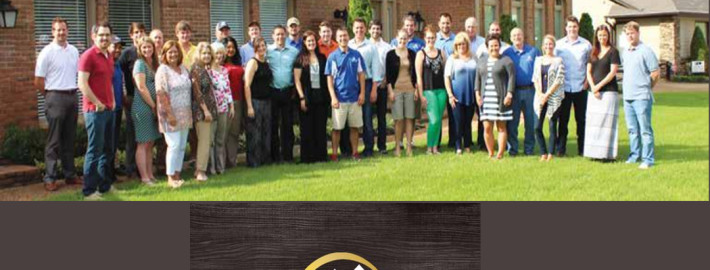 An excerpt from “The Insider’s Guide to Attracting Private Money: Five Secrets to Fast, Unlimited Capital So You Can Save Money, Buy More Real Estate, & Build Wealth,” by Mark Hanf, President of Pacific Private Money.
An excerpt from “The Insider’s Guide to Attracting Private Money: Five Secrets to Fast, Unlimited Capital So You Can Save Money, Buy More Real Estate, & Build Wealth,” by Mark Hanf, President of Pacific Private Money.
When you seek to attract capital from private investors, you need to disclose the risk involved in your proposed project. The reasons you need to do so are several, but one of them is that you are asking people to lend you a portion of their life savings, and they are entitled to know what happens to that money in the event that you exit the picture.
The fifth question we answer in The Five Steps to Money Method™, “What happens if you disappear?” is asking much more than just “What happens if you get hit by a bus?” Disclosing risk is a very important yet often overlooked or ignored piece of the private lending equation.
That is, risk disclosure is often overlooked or ignored by borrowers. Your prospective private lender, on the other hand, is absolutely thinking about the risks of investing with you whether you bring them up or not. And what that prospective lender wants to hear from you is, “What are the risks, and what are your plans if things go wrong?”
You can answer this question by showing your lender how you are structuring your company and what measures you are taking to protect that individual’s investment. For example, who on your team is positioned to take over in the event that something happens to you? If you can address this question and others like it, you will show your potential lender that you have thought this through, and that you take the protection of his or her capital investment very seriously.
The level of detail that you go into when disclosing risk is up to you (with sound advice from your real estate attorney). But the most basic risk disclosure essentially boils down to this message:
YOUR INVESTOR COULD LOSE SOME OR ALL OF HIS OR HER MONEY.
 That is why disclosing risk is such an important factor when you create your investment opportunity presentation. Addressing and disclosing risks in your presentation will make you look professional and thorough, just as the other important components that we have discussed so far in this book have done.
That is why disclosing risk is such an important factor when you create your investment opportunity presentation. Addressing and disclosing risks in your presentation will make you look professional and thorough, just as the other important components that we have discussed so far in this book have done.
Many real estate investors don’t want to include risk-factor disclosures in their presentations because they are afraid that they will scare away their prospective private lenders. They worry that if their potential lender understood the risks, then that person would decide not to invest with them.
However, just sitting back and hoping that everything goes perfectly is not a strong strategy for success. The truth is that many real estate entrepreneurs have ended up in lawsuits because they failed to provide even the most basic disclosure of potential risks.
You should strongly consider engaging a real estate attorney to advise you if you plan to raise capital from private individuals. I am not an attorney, and this does not constitute legal advice. That being said, I have attended numerous real estate conferences and seminars on the topic of private capital, and I have seen many examples of risk disclosures ranging from simple ones to explanations that were long and complicated. As an example, for my mortgage pool fund, I provide prospective investors with a memorandum that includes over twenty pages of risk-factor disclosures.
The fact is that there are basic risks that you should be disclosing to your investors. Those disclosures should be included in any write-up you create for the purpose of raising capital from private individuals.
You don’t disclose these risks to your potential investor to scare them away. You disclose them so that the investor can make an informed decision. Risk factors you might discuss could include things such as:
- changes in the real estate market
- cash flow problems
- conflicts of interest
- an unproven real estate investing company (if you’ve never done a deal before)
CHANGES IN THE REAL ESTATE MARKET
Your opportunity presentation is based on a set of assumptions. Those assumptions include things like market demand, potential market appreciation, and an estimate of the increase in value as a result of your planned improvements.
However, the real estate market is subject to cycles that can affect the marketability, pricing, and days-onmarket estimate of your project. Real estate can and does decline in value as a result of certain market forces. Rising interest rates, job growth, joblessness, new inventory, and other factors can contribute to a drop in demand and prices for real estate in a given market. Your prediction of how well your proposed project will do should be based on a careful review of local market conditions, but you cannot guarantee that the results you predict will be realized.
CASH FLOW PROBLEMS
You have proposed a budget and a spreadsheet to your lender that shows your sources and uses of funds. But what if you come across significant and unexpected cost increases? Do you have the ability to cover them? Typically, your money partner will not be under any obligation to fund additional costs beyond the agreed-upon budget unless you bring this up in your written agreement beforehand. If the project stops as a result of running out of cash, you could be faced with mounting costs and declining profits as time goes on.
CONFLICTS OF INTEREST
Are you planning to dedicate 100 percent of your time to this one project with your prospective money partner? Or do you have other projects or work obligations that might be construed as “conflicts of interest”? You can make a statement in your presentation that gives your lender notice that, while you are dedicated to the success of this endeavor, you are nonetheless free to pursue other business ventures or obligations, as well.
UNPROVEN REAL ESTATE INVESTING COMPANY
 If you are new to real estate investing or if you have formed a new company to pursue real estate investments, you may not have a track record of success. In that case, your business model is unproven.
If you are new to real estate investing or if you have formed a new company to pursue real estate investments, you may not have a track record of success. In that case, your business model is unproven.
Changes in the market, cash flow problems, conflicts of interest, and an unproven real estate company are just a few examples of the risks that you may want to disclose to your lender. There are many others that you can identify and include in your proposal to give your investor a complete picture of what the project will entail. A qualified real estate attorney is an integral component to your team and should be consulted to assist you in drafting an appropriate disclosure statement.
I have been telling you to always put the best interests of your private lender first, but the fact of the matter is that a primary purpose of your disclosure statement is to protect you in case your lender chooses to sue you. If you can demonstrate that you disclosed material risks to your private lender before that individual invested with you, should things not work out as planned, you will be much better protected in a court of law.
Excerpted from the book “The Insider’s Guide to Attracting Private Money” by Mark Hanf, available at www.AttractingPrivateMoneyBook.com . Mark is president of Pacific Private Money Inc., a California-based hard money lender who has raised over $200 million in private capital since 2009.

















 While others are increasingly concerned about sharing their secrets and playbooks, Chris has become very active on the online real estate forum BiggerPockets. Asked about this participation in the new sharing economy he says: “When I was 18 years old I was lucky enough to attend a Zig Ziglar event. He said something on stage that really had a profound effect on many of us attending that night. He stated that you could have anything you wanted in life, if you help enough other people get what they want in life.” That’s a philosophy the Clothiers continue to practice on a daily basis.
While others are increasingly concerned about sharing their secrets and playbooks, Chris has become very active on the online real estate forum BiggerPockets. Asked about this participation in the new sharing economy he says: “When I was 18 years old I was lucky enough to attend a Zig Ziglar event. He said something on stage that really had a profound effect on many of us attending that night. He stated that you could have anything you wanted in life, if you help enough other people get what they want in life.” That’s a philosophy the Clothiers continue to practice on a daily basis. THE SCOREBOARD
THE SCOREBOARD Whether just starting out in real estate, or seeking to expand an already formidable real estate empire there is no question that it’s worth checking out what’s going on in Memphis. Investors can scoop their Free Passive Income Jumpstart Package, and detailed analysis of three solid rental property markets, Houston, Memphis, and Dallas, at
Whether just starting out in real estate, or seeking to expand an already formidable real estate empire there is no question that it’s worth checking out what’s going on in Memphis. Investors can scoop their Free Passive Income Jumpstart Package, and detailed analysis of three solid rental property markets, Houston, Memphis, and Dallas, at 
 An excerpt from “The Insider’s Guide to Attracting Private Money: Five Secrets to Fast, Unlimited Capital So You Can Save Money, Buy More Real Estate, & Build Wealth,” by Mark Hanf, President of Pacific Private Money.
An excerpt from “The Insider’s Guide to Attracting Private Money: Five Secrets to Fast, Unlimited Capital So You Can Save Money, Buy More Real Estate, & Build Wealth,” by Mark Hanf, President of Pacific Private Money. That is why disclosing risk is such an important factor when you create your investment opportunity presentation. Addressing and disclosing risks in your presentation will make you look professional and thorough, just as the other important components that we have discussed so far in this book have done.
That is why disclosing risk is such an important factor when you create your investment opportunity presentation. Addressing and disclosing risks in your presentation will make you look professional and thorough, just as the other important components that we have discussed so far in this book have done. If you are new to real estate investing or if you have formed a new company to pursue real estate investments, you may not have a track record of success. In that case, your business model is unproven.
If you are new to real estate investing or if you have formed a new company to pursue real estate investments, you may not have a track record of success. In that case, your business model is unproven.
 The CEO of Southern California-based HomeUnion hopes to turn the business into the Amazon.com of real estate investing.
The CEO of Southern California-based HomeUnion hopes to turn the business into the Amazon.com of real estate investing. “We are making single-family real estate investment an institutional play where investors can buy this as they would any other stock market instrument. Our platform brings fully vetted investments. This is different from companies that sell opportunistic deals of the month and merely connect people with sellers and collect their money. ” Ganguly said.
“We are making single-family real estate investment an institutional play where investors can buy this as they would any other stock market instrument. Our platform brings fully vetted investments. This is different from companies that sell opportunistic deals of the month and merely connect people with sellers and collect their money. ” Ganguly said.